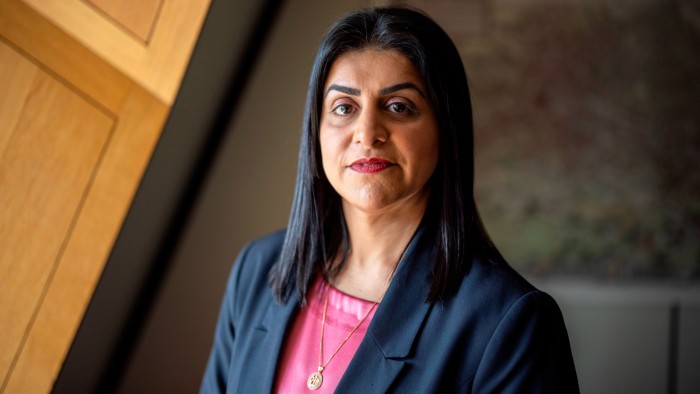Unlock the Editor’s Digest for free
Roula Khalaf, Editor of the FT, selects her favourite stories in this weekly newsletter.
Criminals who have been spared jail will be monitored as closely as those who are locked up under plans to create “prison outside prison”, the UK justice secretary has said.
Shabana Mahmood has asked Big Tech companies to develop more extensive surveillance of offenders outside jail as ministers look for ways to tackle overcrowding in prisons and save money.
Prime Minister Sir Keir Starmer’s government is preparing for a big rethink of penal policy, having commissioned former Conservative justice secretary David Gauke to conduct an independent review of sentencing.
His report, due to be released within weeks, is expected to give the Labour government political cover to cut the number of people sent to jail and the length of their sentences, a reversal of the 1993 “prison works” mantra of former Tory home secretary Lord Michael Howard.
“If we are going to do more community punishment, I want to be able to give the public confidence,” Mahmood told the Financial Times.
Artificial intelligence and more sophisticated offender “tagging” technology could be used to better track offenders in the community and “effectively create a prison outside of prison”, she said.
“Where I want us to be is to be is [for offenders to know that] ‘the eyes of the state are upon you’, just as they would be in prison.”
Mahmood said technology could also be used to “deliver better rehabilitation” of offenders.
Gauke has previously said efforts by politicians to appear “tough on crime” have left England and Wales with one of the highest incarceration rates in western Europe and a prisons system close to breaking point.
Prisons in England and Wales were near capacity when Labour won power in July last year. The government released thousands of inmates early to alleviate overcrowding.
At a meeting in London on Thursday, the justice secretary asked executives at companies including Microsoft, Amazon Web Services and Google for “bold ideas” for how technology can be better deployed in the justice system.
A “holy grail” was monitoring tags to test for drugs, Mahmood said. Alcohol monitoring tags, also known as sobriety tags, are already in use.
Mahmood also said she was “not squeamish” about using “gait recognition” — biometric technology that uses cameras or sensors to monitor behaviour — to stop violence in jails before it happens.
Sam Townend KC, former chair of the Bar Council, said there was “real potential” in using technology to make more effective use of the prison estate.
However, he said such projects would “need to be managed very tightly, because the Ministry of Justice does not have a good record” in technology procurement.
Mahmood, who would not be drawn on any funding that might be made available for such projects, said she was conscious that public sector technology rollouts had been troublesome.
However, she said: “We start with a huge amount of ambition and a desire to learn the lessons of what’s gone wrong previously so that we don’t repeat the same mistakes.”
